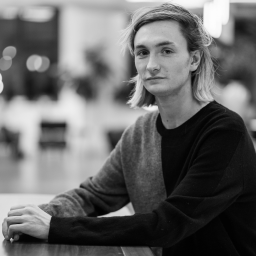Art & Exhibitions
A Lush Showcase of Lalanne’s Menagerie Pops Up at Christie’s Ahead of Landmark Auction
François-Xavier Lalanne is celebrated for animal sculptures that fused art and design.
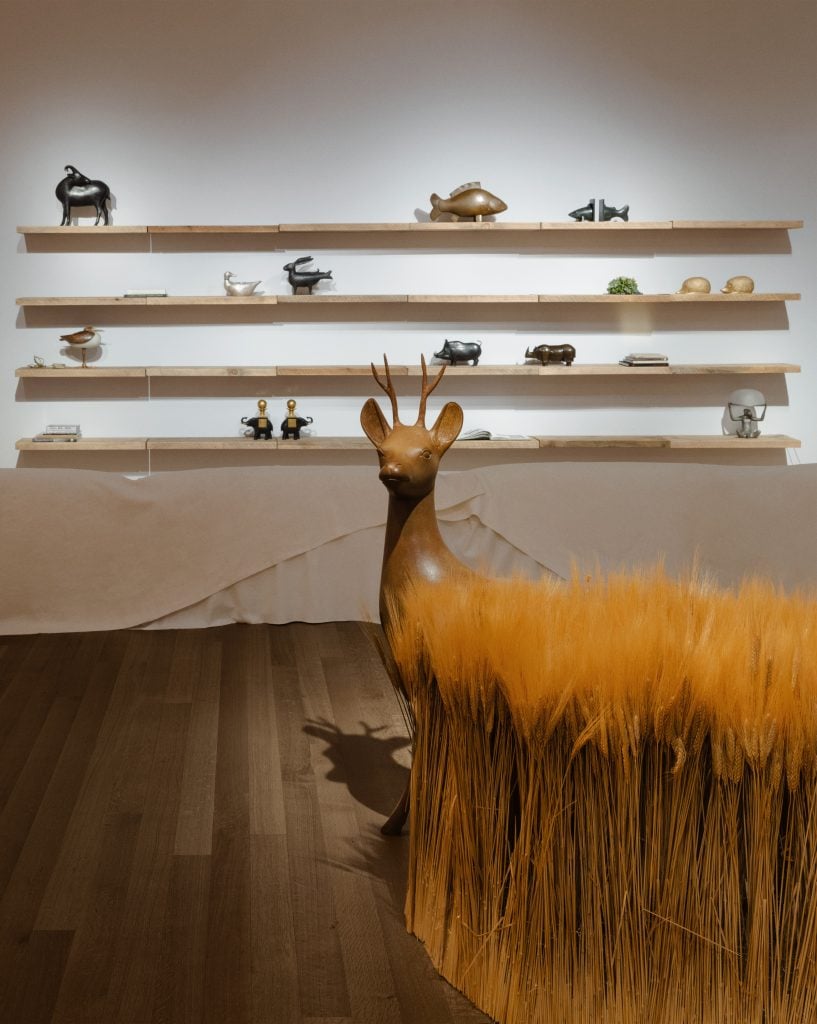
Among the sculptural menagerie that’s taken over the ground floor of Christie’s Rockefeller Center galleries, the smallest creature merits mentioning. It’s a metallic fly that lingers on an irregularly-shaped white stone that recalls temple columns and summer heat.
François-Xavier Lalanne, the playful French sculptor of animals, certainly created more elaborate versions of the fly—including one of brass, steel, and rosewood that hid a blue porcelain toilet bowl—but La Mémoire des Mouches (2000) displays the quality that would make Lalanne’s name: a generous attention to all of god’s creatures.
Lalanne’s series of flies arrived after the reemergence of his sheep sculptures in the 1990s, marking something of a humble side project after a grand success. Naturally, at the exhibition spotlighting the 70 works that Dorothée Lalanne, the sculptor’s daughter, is putting up for auction at Christie’s on October 10, it’s the sheep we meet first.
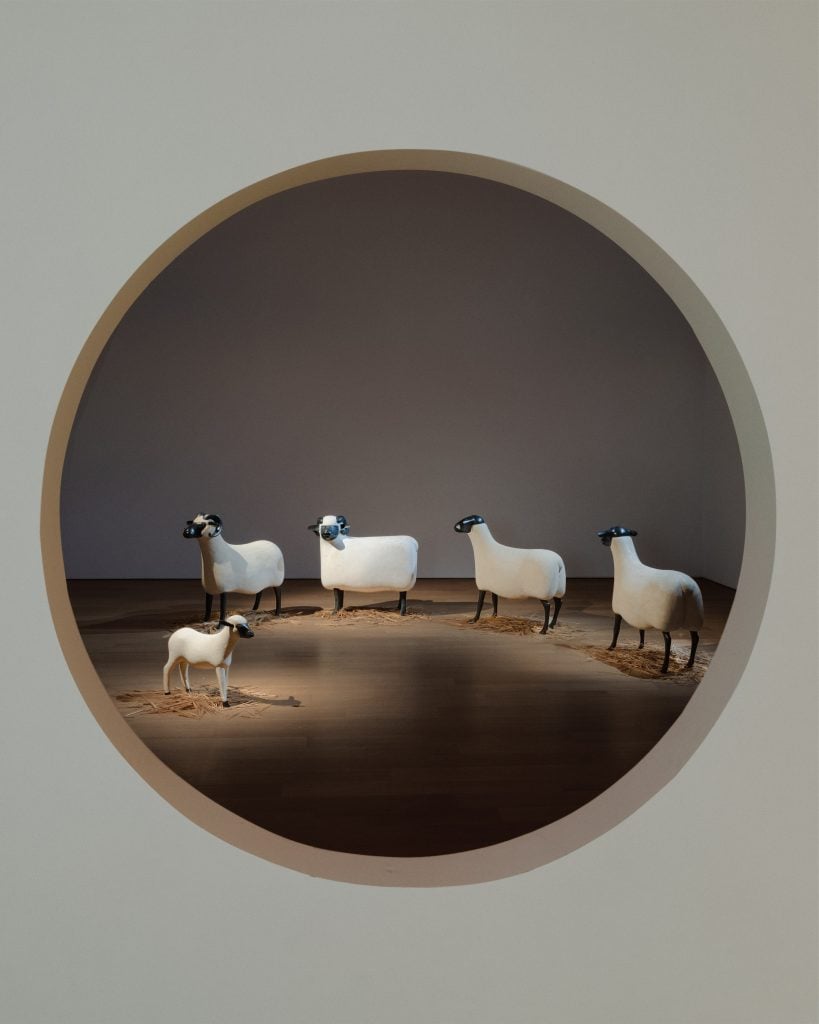
Installaton image of the semi-circle of sheep. Photo: courtesy Christie’s.
French fashion designer Simon Porte Jacquemus has been called in to play curator and zookeeper and he begins with a pair of low-lit sheep-only rooms. In one, a solitary ram lingers, its horns forming stark shadows on the floor. In the other, Jacquemus presents a procession of sheep with the youngest member cast forward, as if auditioning for our affections, with a nursery rhyme, one imagines.
Today, Lalanne is celebrated for bringing together the worlds of fine art and high-end design in sculptural works that boast a utilitarian function (albeit for the bourgeoisie). Of the sheep, some of which double as chairs, he once said, “it is, after all, easier to have a sculpture in an apartment than to have a real sheep. And, it’s even better if you can sit on it.” Fair enough.
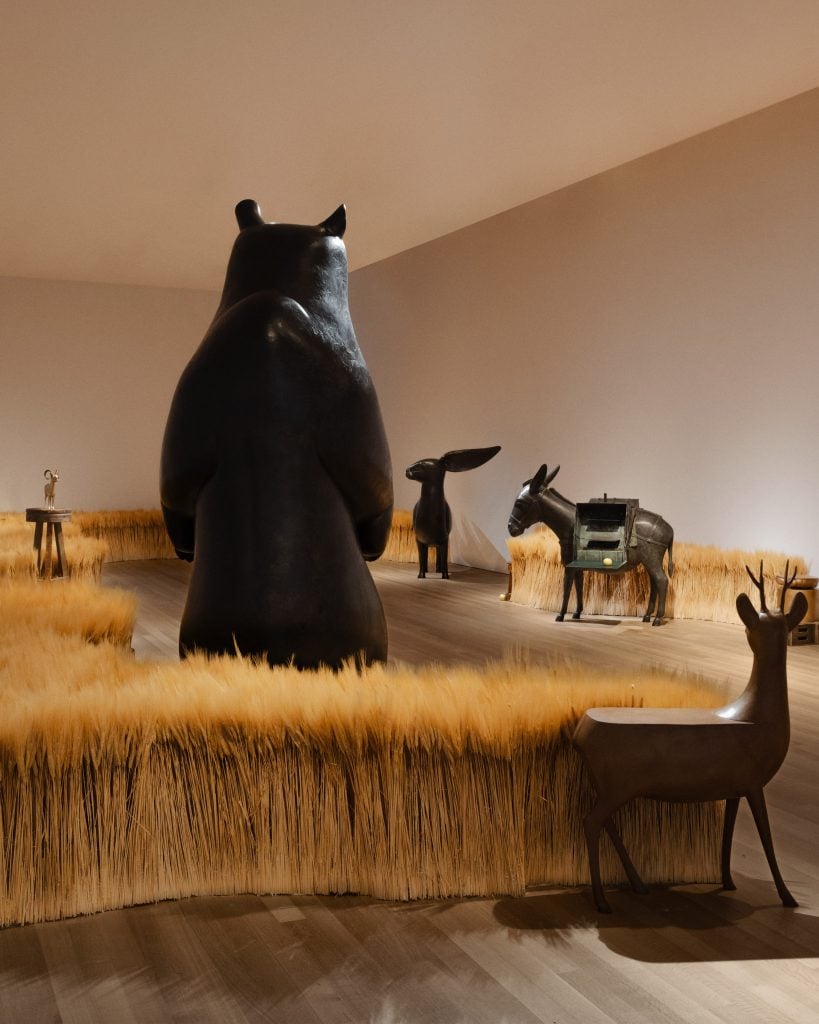
The menagerie of Lalanne animals in the main gallery at Christie’s. Photo: courtesy Christies.
At Christie’s, Jacquemus offers a fantastical display through which we imagine how Lalanne might have arrived at such hybrid sculptures. A French farm table laden with a protractor stands beside a puddle of frustrated paper balls. On the back wall are a series of A4 sketches that show a table formed of an upside-down bear, fountains topped by birds, a squat hedgehog. All that is missing is the artist himself bent over the table with his sleeves rolled up.
In the neighboring rooms, we encounter the functional sculptures Lalanne did make. There’s the wader bird whose breast comes aglow as a lamp, the grinning fish content to serve as book ends, the tortoise enrosed with red and green cacti, the docile cow that doubles as a mint planter.
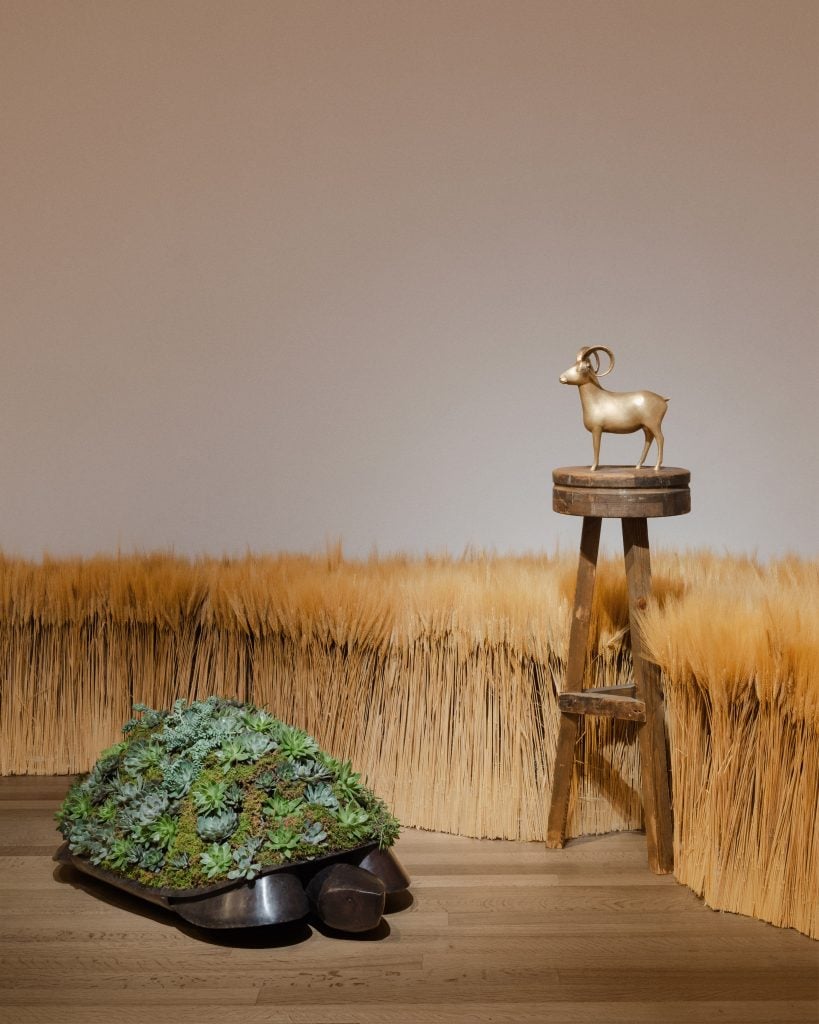
Lalanne’s topiary tortoise alongside a miniture goat in the main gallery at Christie’s. Photo: courtesy Christie’s.
But it’s Lalanne’s less utilitarian full-sized game that most draw the eye. Chiefly, Lapin à Vent de Tourtour (2002), a cutesy six-foot bronze beast that brings together elements of a bird, sheep, rabbit (fun fact: its head moves like a weathervane). It’s a beguiling creature to take in, simultaneously whimsical and unsettling, as though a thing conjured haphazardly in a laboratory.
Lapin à Vent de Tourtour stands among Jacquemus’s thigh-high fields of wheat with a donkey to its side, a towering bear looking on, and a deer surveying the gallery floor. The animals hold the same deep brown patina and seem of one scene. It’s strange to think soon they will be scattered far and wide.

